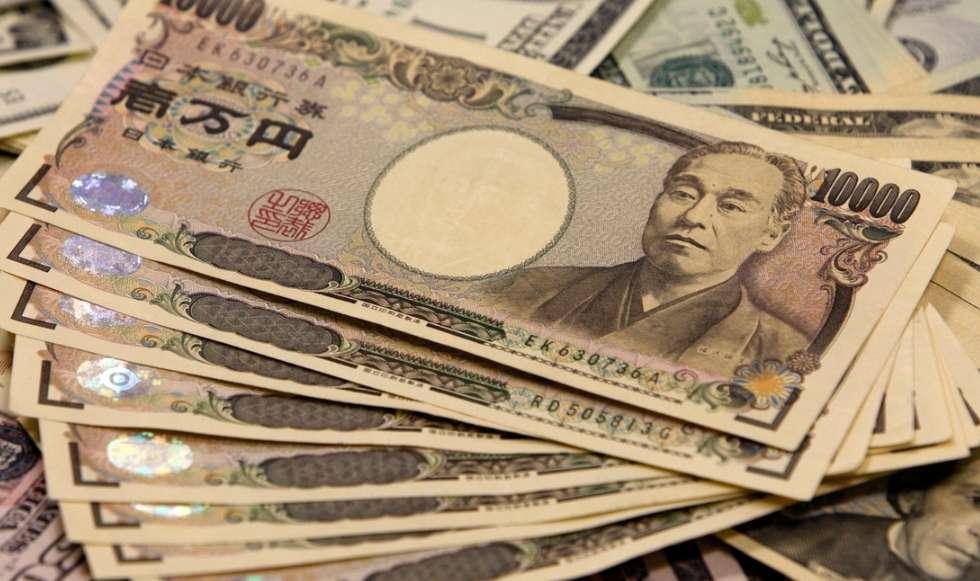Yen Depreciation Fuels Inflation
Advertisements
As observed in January, Japan's wholesale inflation rate surged to a seven-month high of 4.2%, marking the fifth consecutive month of acceleration. This development has intensified expectations in the market regarding the Bank of Japan’s potential for another interest rate hike later this year. The dynamics driving this uptick in inflation are multifaceted, and examining them offers insights into Japan's current economic landscape.
The Corporate Goods Price Index (CGPI), which measures the prices companies charge each other for goods and services, recorded an annual increase of 4.2%. This figure exceeded the anticipated 4.0% rise, and the previous month’s revised increase was noted at 3.9%. It's noteworthy that this level of inflation has not been seen since June 2023 when figures spiked by 4.5%. The causes of this inflation can be linked significantly to the agricultural sector, where prices for staples like rice, eggs, and meats have been on a steady rise, contributing to an overall 36.2% surge in food product prices, alongside a 2.9% increase in food costs overall.
In the context of these rising prices, the gradual withdrawal of government subsidies leading to increased energy costs also plays a crucial role. Prices for a range of materials including textiles, plastics, and non-ferrous metals have risen as well, indicating a trend of persistent inflation across various product categories.
Bank of Japan Governor Kazuo Ueda expressed concerns prior to the data release, cautioning that ongoing increases in food prices could significantly affect the public's inflation expectations. Ueda's remarks underscore the central bank's vigilance regarding potential upward pressures on prices, a sentiment echoed by several economists.
Takeshi Minami, Chief Economist at the Norinchukin Research Institute, noted that while wages are improving, the rising costs of food and energy could dampen consumer confidence and delay a rebound in household spending. He suggested that the Bank of Japan may not have sufficient reasons to hasten the pace of interest rate hikes in response to these developments.

Adding another layer to the inflation narrative is the depreciation of the yen. Data indicates that the import price index, measured in yen, increased by 2.3% year-on-year in January, compared to a revised increase of 1.4% in December. The weakening yen continues to raise the costs for businesses reliant on imported goods and contributes to overall inflation in the economy.
Expectations for import prices to continue rising were reinforced by recently released robust inflation data from the United States, which has diminished the market's anticipation for imminent rate cuts by the Federal Reserve. This scenario has resulted in the dollar rising to a one-week high against the yen, with the exchange rate climbing by 1.29% to reach 154.44 and later stabilizing around 154.33 during Asian trading hours.
Additionally, Japanese government bond yields saw an uptick, with the benchmark 10-year yield reaching a 15-year peak of 1.37%. Analysts attribute this upward trajectory of bond yields to rising U.S. Treasury rates and uncertainties surrounding U.S. tariff policies. Market sentiments currently place an 80% chance on the likelihood of the Bank of Japan raising interest rates by July.
Naomi Muguruma, Chief Bond Strategist at Mitsubishi UFJ Morgan Stanley Securities, opined that the ongoing inflationary pressures could lead the Bank of Japan to implement several more rate increases in the coming years. She emphasized that, while it remains premature for the Bank to feel compelled to raise rates substantially to cool demand, businesses may persist in passing on rising costs related to raw materials and labor, prompting the Bank to consider raising rates to what is viewed as a neutral stance in the economy.
In December of last year, the core consumer inflation rate in Japan hit 3.0%, marking the highest annual inflation rate in 16 months, and has remained above the 2% target set by the Bank of Japan for nearly three years. This trend illustrates persistent domestic price pressures, presenting significant challenges for the Bank in balancing inflation with economic growth. The direction of future monetary policy will likely have profound implications for Japan's economic development, requiring close monitoring as the landscape continues to evolve.
Post Comment